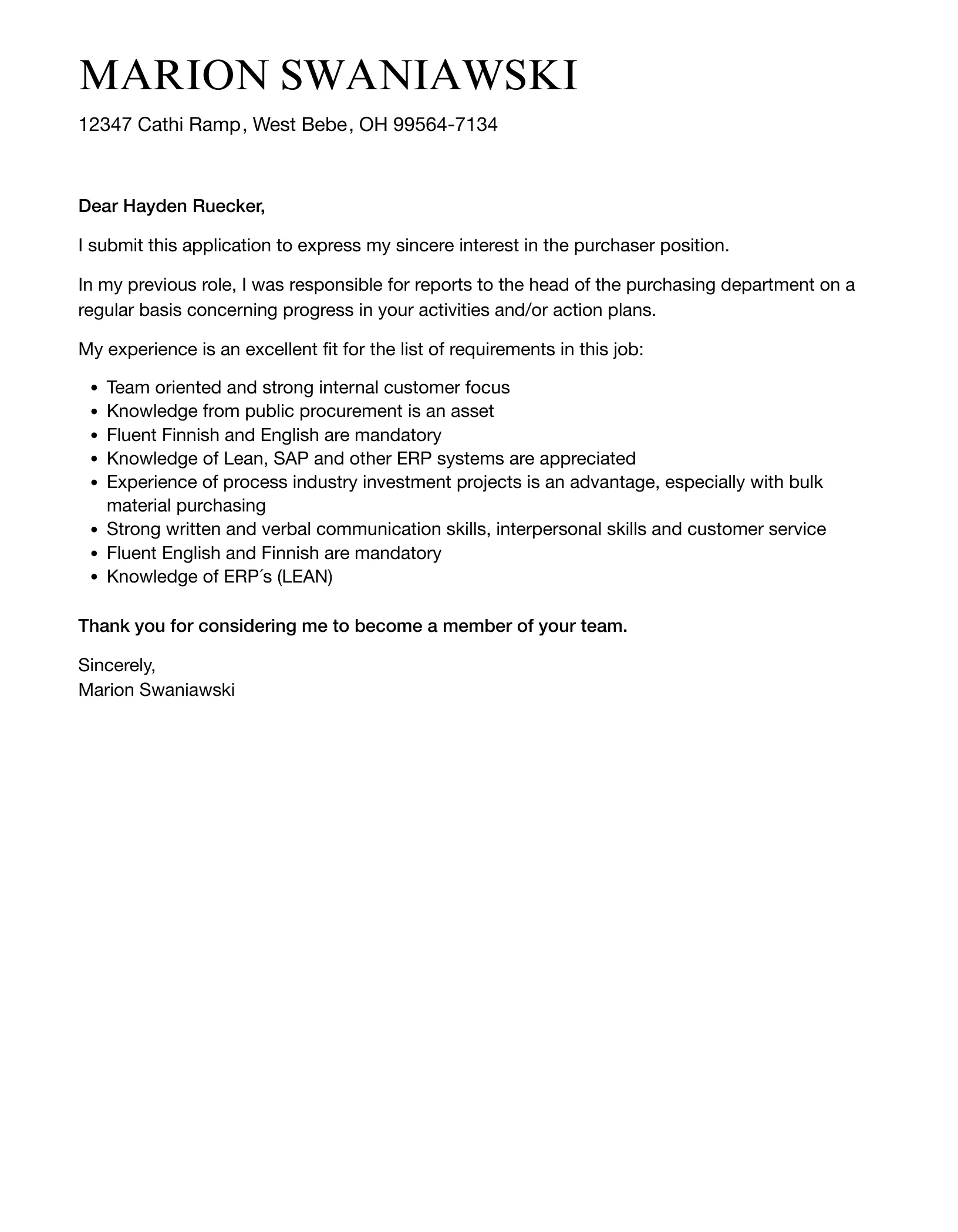Understanding the Importance of a Purchaser Cover Letter
A purchaser cover letter is more than just a formality; it’s your first opportunity to make a strong impression on a potential employer. In a competitive job market, a well-crafted cover letter can set you apart from other applicants by showcasing your personality, passion, and the specific skills that make you the ideal candidate. It’s a chance to highlight your understanding of the role, your alignment with the company’s values, and your eagerness to contribute to their success. A compelling cover letter provides context to your resume, allowing you to elaborate on your experiences and demonstrate how your qualifications directly address the employer’s needs. This is why it is very important to have a good purchaser cover letter.
Highlighting Relevant Skills
When crafting your purchaser cover letter, it’s crucial to emphasize the skills that are most relevant to the job description. Procurement roles require a diverse skill set, so carefully review the job posting and identify the key skills the employer is seeking. Tailor your letter to mirror the language used in the job description, showcasing your proficiency in areas such as vendor management, negotiation, contract law, and supply chain optimization. Demonstrate how your skills align with the company’s needs by providing specific examples of how you’ve utilized these skills in previous roles to achieve positive outcomes. It is important to choose the best skills and include them at the top of your letter.
Detailing Procurement Experience
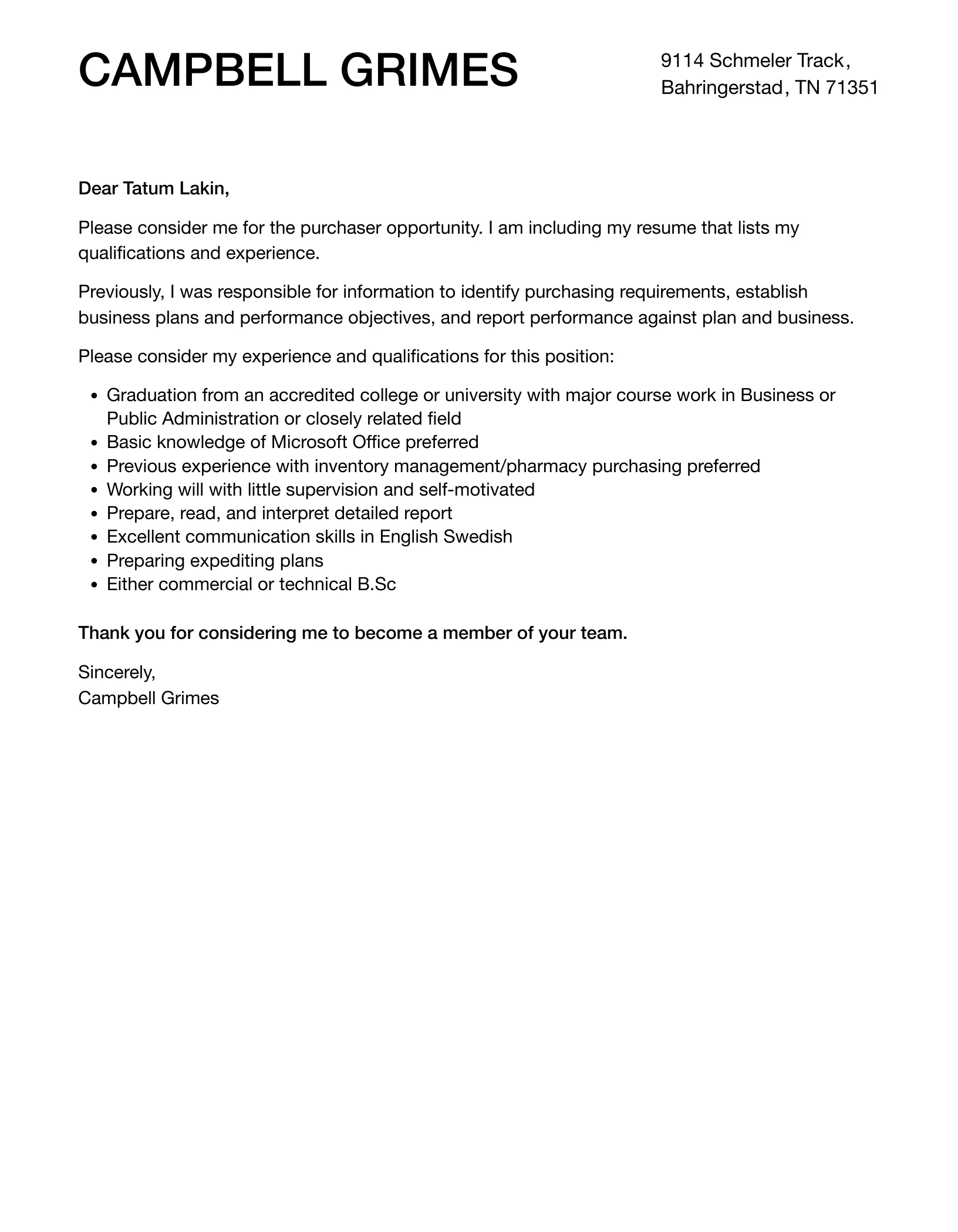
Your cover letter should provide a detailed overview of your procurement experience. Employers want to see a track record of success, so use your cover letter to showcase your accomplishments. Describe your roles and responsibilities, focusing on the areas that are most relevant to the position you are applying for. Provide specific examples of projects you’ve managed, contracts you’ve negotiated, and cost savings you’ve achieved. Highlight your experience with different procurement processes, such as sourcing, purchasing, and inventory management. When detailing your experience, be sure to quantify your achievements whenever possible, using data and metrics to demonstrate the impact of your work.
Showcasing Negotiation Skills
Negotiation is a core skill for a purchaser, and your cover letter provides an opportunity to showcase your abilities in this area. Describe your experience negotiating contracts, pricing, and terms with vendors. Provide examples of successful negotiations where you secured favorable terms or achieved cost savings for your previous employers. Highlight your ability to build strong relationships with vendors while advocating for your company’s interests. Emphasize your understanding of negotiation strategies and your ability to achieve win-win outcomes. These skills are very important for a purchaser.
Demonstrating Vendor Management Proficiency
Vendor management is another critical aspect of a purchaser’s role. In your cover letter, highlight your experience in vendor selection, performance management, and relationship building. Describe your process for evaluating vendors, negotiating contracts, and monitoring performance. Provide examples of how you’ve successfully managed vendor relationships to ensure timely delivery, quality products, and competitive pricing. Mention any vendor management systems you’re familiar with, and emphasize your ability to maintain strong, mutually beneficial relationships with suppliers. This ensures a good relationship between the company and its suppliers.
Quantifying Achievements
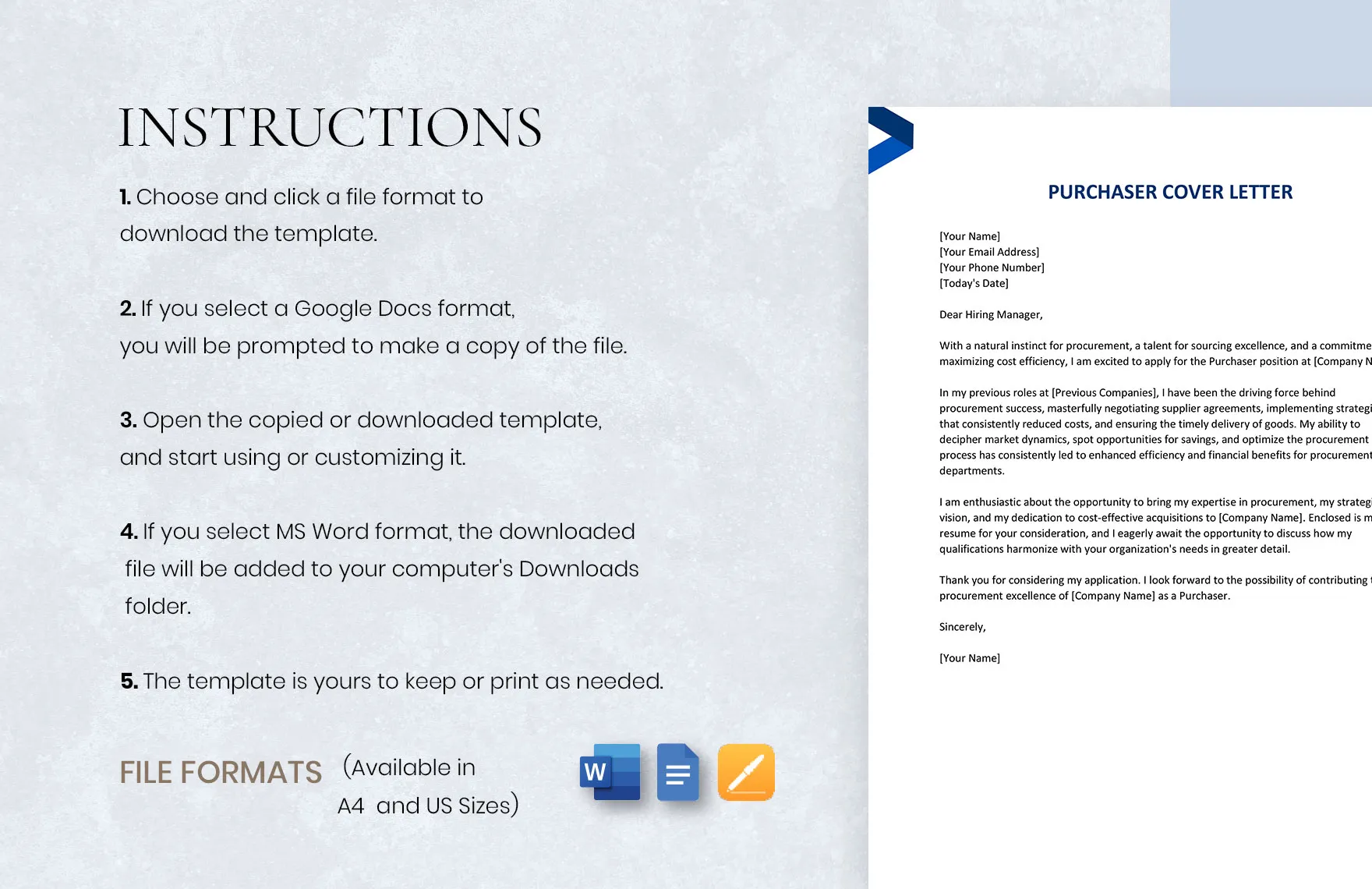
In addition to describing your experience and skills, your cover letter should quantify your achievements whenever possible. Use data and metrics to demonstrate the impact of your work. For example, instead of simply stating that you negotiated favorable pricing, specify the percentage of cost savings you achieved. If you’ve improved lead times, provide the specific reduction in days or weeks. If you’ve implemented new sourcing strategies, quantify the increase in vendor diversity or the reduction in supply chain risk. The use of numbers and metrics will make your cover letter more compelling and demonstrate your ability to deliver results.
Providing Specific Examples
Abstract statements about your skills and experience are less effective than concrete examples. In your cover letter, support your claims with specific examples of how you’ve applied your skills to achieve positive outcomes. For instance, instead of saying you are a skilled negotiator, describe a specific negotiation where you secured a significant discount or improved contract terms. If you are proficient in vendor management, give an example of how you turned around a struggling vendor relationship, improved performance, or reduced costs. These examples should highlight your abilities and provide a clear picture of your capabilities.
Mentioning Key Accomplishments
Your cover letter is an ideal place to highlight your key accomplishments. Select a few of your most significant achievements and describe them in detail. Focus on accomplishments that are relevant to the job description and that demonstrate your ability to deliver results. These accomplishments could include successful contract negotiations, cost savings initiatives, process improvements, or awards and recognitions. Use the STAR method (Situation, Task, Action, Result) to structure your accomplishments, providing context, describing your role, detailing the actions you took, and quantifying the results you achieved.
Tailoring the Cover Letter to the Job
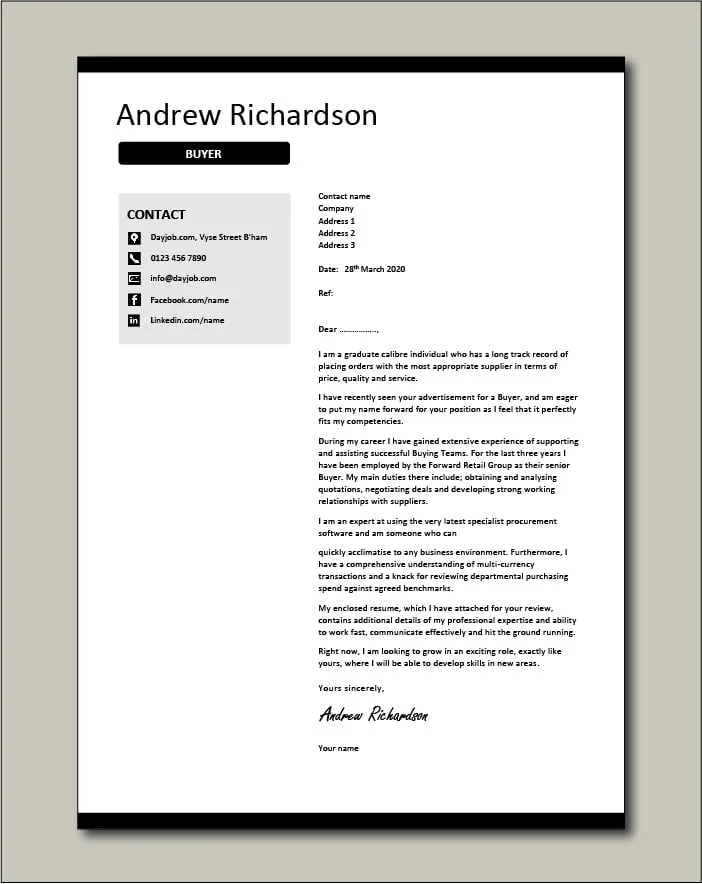
A generic cover letter is unlikely to impress a potential employer. Tailoring your cover letter to each job application is essential. This means carefully reviewing the job description and customizing your letter to address the specific requirements and preferences of the employer. Highlight the skills, experiences, and accomplishments that align with the job requirements, and use the same keywords and phrases that are used in the job description. By demonstrating that you understand the employer’s needs and that you are a good fit for the role, you will significantly increase your chances of getting an interview.
Researching the Company
Before you start writing your cover letter, conduct thorough research on the company. Visit their website, read their mission statement, and learn about their products or services, their values, and their culture. Understanding the company’s goals and objectives will help you tailor your cover letter to demonstrate how your skills and experience align with their needs. It will also allow you to express your genuine interest in the company and the role. Research shows that the applicants that research the company’s past are likely to have a higher success rate.
Matching Skills to Job Requirements
Carefully review the job description and identify the key skills and qualifications the employer is seeking. Then, match your skills and experience to those requirements in your cover letter. Use the same keywords and phrases that are used in the job description to demonstrate that you possess the required skills. Provide specific examples of how you’ve utilized these skills in previous roles to achieve positive outcomes. By clearly demonstrating that you meet the job requirements, you’ll show the employer that you have what it takes to succeed in the role. It is important to match the skills in the letter with the skills requested.
Emphasizing Company Values
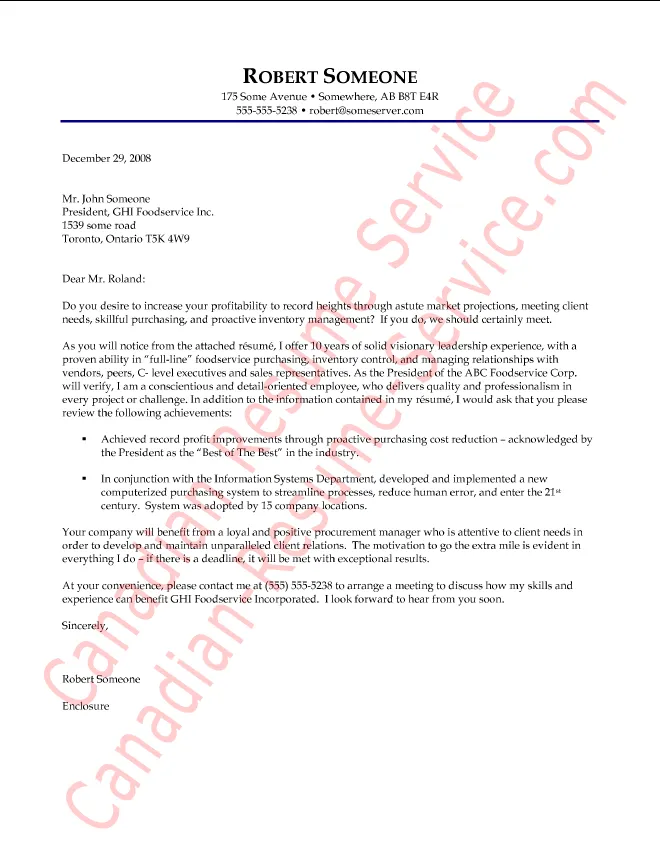
In addition to highlighting your skills and experience, take the time to emphasize your alignment with the company’s values. If the company values teamwork, highlight your experience collaborating with others. If they prioritize innovation, mention your ability to come up with new ideas. Demonstrate your understanding of the company’s culture and how you can contribute to it. Showing that you share the company’s values will make you a more attractive candidate and increase your chances of getting hired.
Formatting and Presentation
The formatting and presentation of your cover letter are just as important as its content. A well-formatted letter is easy to read and makes a positive impression on the employer. Use a professional font, such as Times New Roman or Arial, and maintain a consistent font size throughout the letter. Use clear and concise language, and avoid long paragraphs. Proofread your letter carefully for any grammatical errors or typos. Use a professional letter format, including your contact information, the date, and the employer’s contact information. A well-formatted and presented cover letter demonstrates your attention to detail and your commitment to professionalism.
Using a Professional Tone
Maintain a professional tone throughout your cover letter. Use formal language and avoid slang, jargon, and overly casual language. Address the hiring manager by name whenever possible, and use a respectful and courteous tone. Demonstrate your enthusiasm for the role, but avoid being overly effusive or boastful. The tone of your letter should reflect your professionalism and your respect for the employer and the opportunity. A professional tone ensures that the applicant is taken seriously.
Keeping it Concise
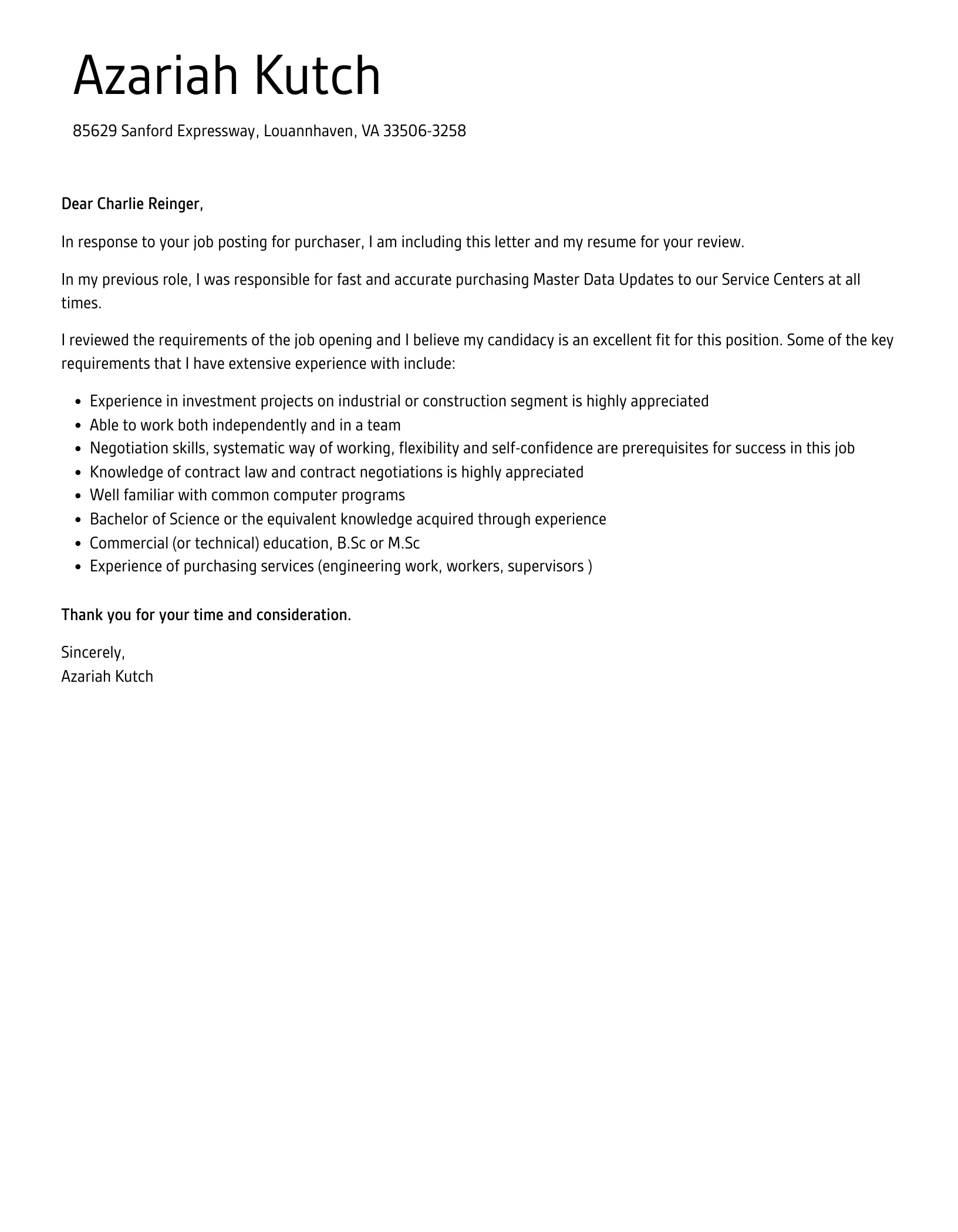
Employers are busy, so it’s important to keep your cover letter concise and to the point. Aim for a one-page letter, and focus on the most important information. Avoid unnecessary details or lengthy explanations. Use clear and concise language, and get straight to the point. Make sure that your letter is easy to read and that it highlights your key qualifications and accomplishments. Concise cover letters are more likely to be read by the employer.
Proofreading for Errors
Proofreading your cover letter is essential to ensure that it is free of errors. Grammatical errors, typos, and other mistakes can make a negative impression on the employer and undermine your credibility. Proofread your letter carefully, and have someone else review it as well. Use spell check and grammar check tools, but don’t rely on them entirely. Read your letter out loud to catch any awkward phrasing or sentence structure. A well-proofread cover letter demonstrates your attention to detail and your commitment to excellence.
Contact Information and Closing
The closing of your cover letter is your last opportunity to make a positive impression and to encourage the employer to contact you. Make sure to include your contact information, express your enthusiasm for the role, and request an interview. Following these steps will help you to close the deal and land the job.
Including Contact Details
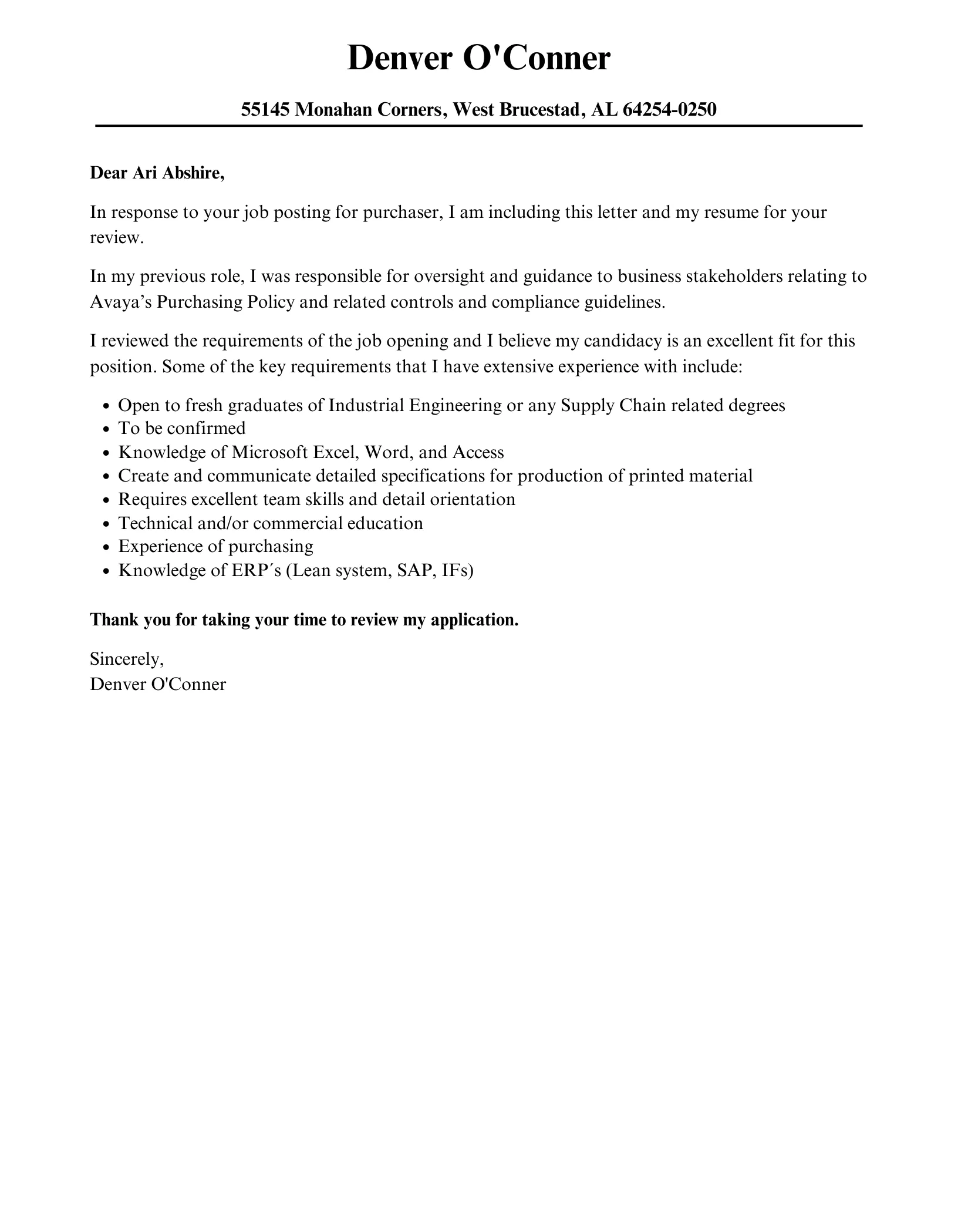
At the top of your cover letter, include your contact information, including your name, address, phone number, and email address. Make sure your contact information is current and professional. In the closing of your letter, reiterate your contact information and make it easy for the employer to reach you. Including your contact details is a very important step in the process.
Expressing Enthusiasm
In the closing paragraph of your cover letter, express your enthusiasm for the role and for the company. Highlight your interest in the opportunity and reiterate your belief that you are a good fit for the position. Demonstrate your eagerness to contribute to the company’s success and to learn more about the role. Expressing enthusiasm is the key to landing an interview and getting the job.
Requesting an Interview
In your closing paragraph, request an interview. State your availability and express your willingness to discuss your qualifications further. Thank the employer for their time and consideration. End your letter with a professional closing, such as “Sincerely” or “Best regards,” followed by your name. Requesting an interview is the final and most important step in the process.
